By Diris Martin with Doris Mponji, CAMFED Association Tanzania
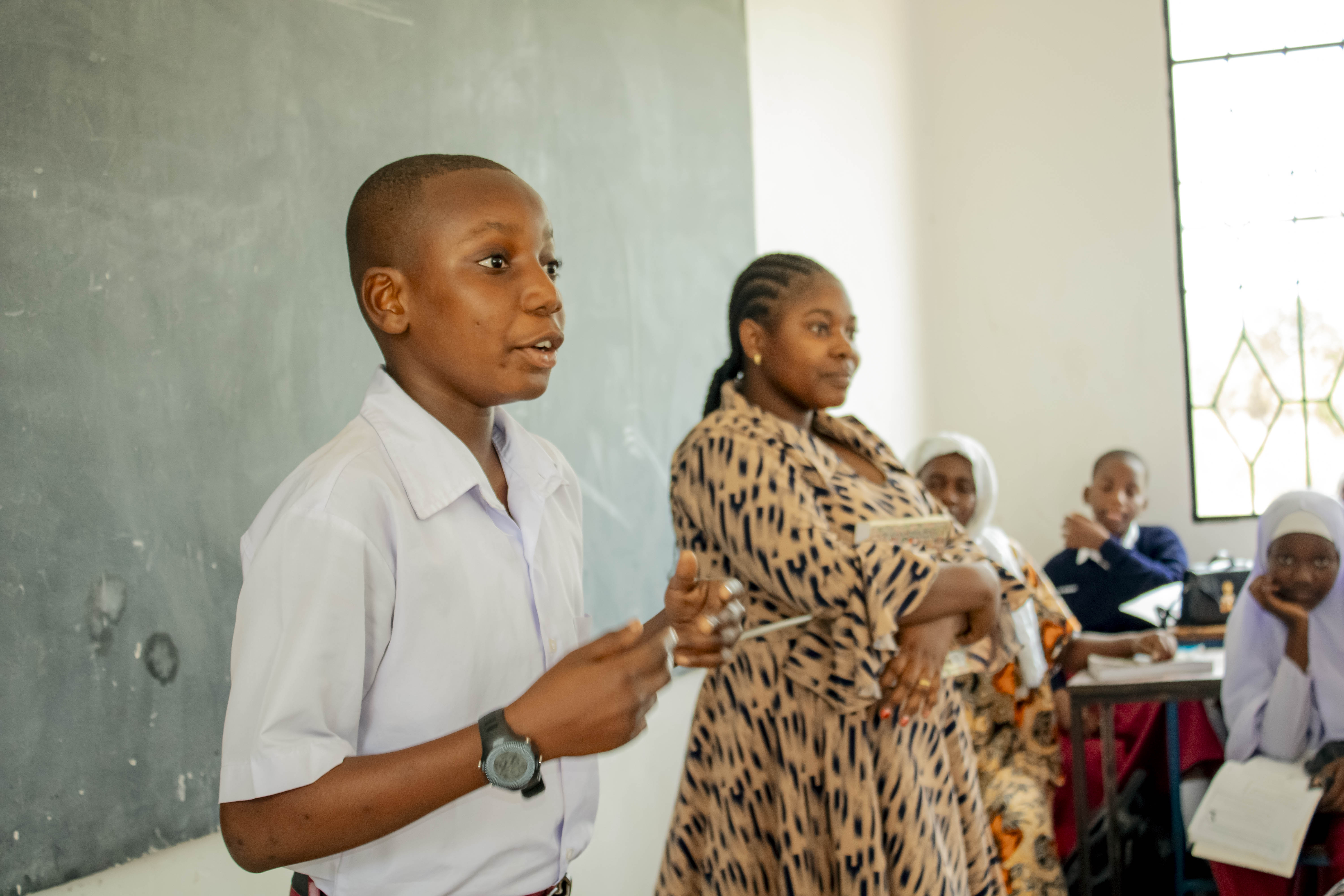
Why ‘big sisters’ matter
I'm Debora, a Learner Guide and school Matron in Tanzania. Once a vulnerable girl myself, I mentor students in Tanzania, helping them stay safe, stay…

By Diris Martin with Doris Mponji, CAMFED Association Tanzania
This article was first published by Taylor & Francis in Childhood Education Innovations on 22 January 2021, available online: https://www.tandfonline.com/doi/full/10.1080/00094056.2021.1873685
My colleague Doris from Ulanga District, Tanzania, lost her father when she was very young. Her stepfather did not intend to spend the meagre family resources on his stepdaughter’s education. He expected her to marry, and her husband to support her. Yet Doris knew all too well the misery of child marriage. She had passed her primary school exams and lobbied her secondary school to let her start, even though she had no money for school fees, supplies, or her uniform.
Luckily, her school community committee recommended Doris for financial and social support from CAMFED (Campaign for Female Education). With her existential worries removed, she was among the school’s top three students, and quickly became academic prefect, excelling in math, biology, chemistry and physics. Her mother was thrilled, but her academic success did not sway Doris’ stepdad. When she got home from school, he expected her to cook, clean, and work in the family’s small, home-based shop, selling the vegetables they grew. She’d work until 10 PM. The only place she could concentrate on studying was at school.
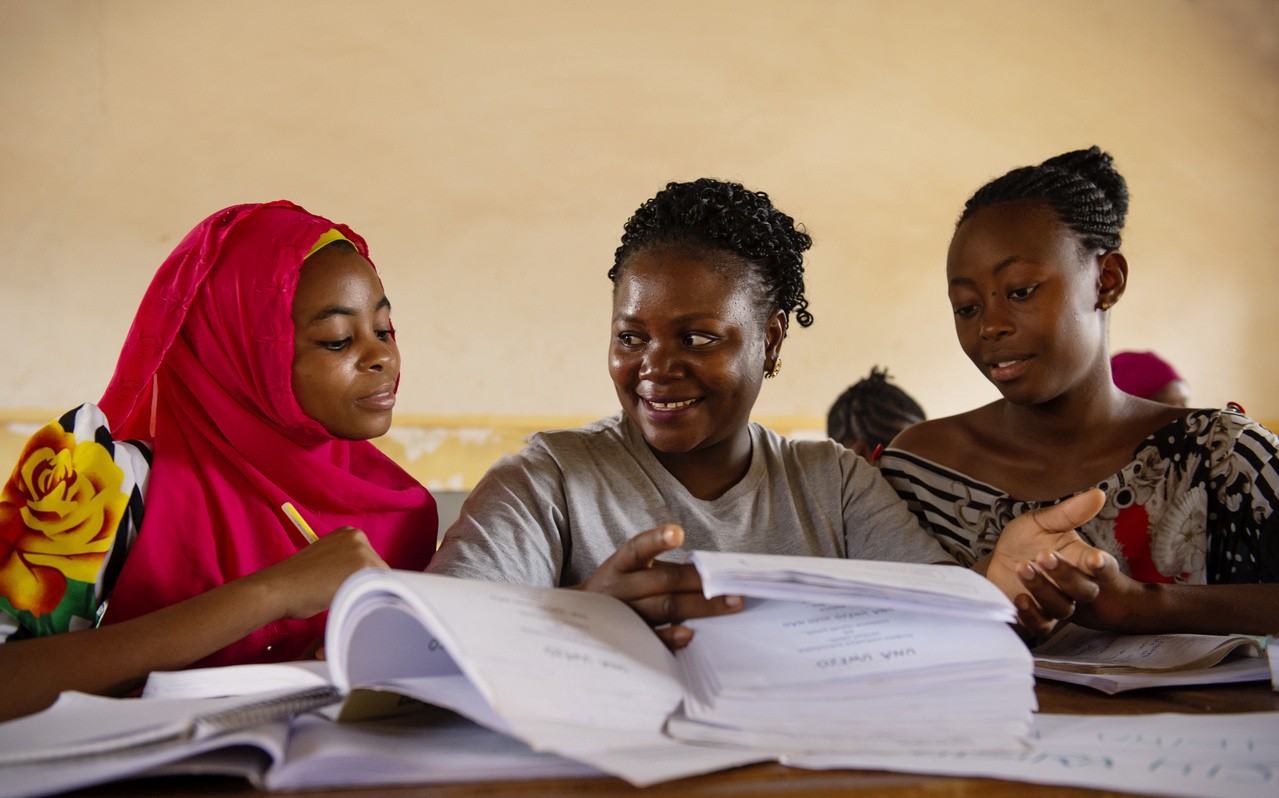
CAMFED Learner Guide training at Chalinze, Tanzania, with Core Trainer Stumai Kaguna, who, like Diris and Doris, has progressed from being a Learner Guide to training other young women, and coordinating programs at district level, using her rich experience of the gendered barriers to education and community leadership skills. (Photo: CAMFED/Eliza Powell)
Nevertheless, Doris persisted, graduated, and joined the CAMFED Association, our pan-African network of women leaders. Like me, she trained as a ‘Learner Guide,’ a mentor and role model for other vulnerable girls in her community. Learner Guides volunteer for at least 18 months to deliver CAMFED’s My Better World life skills and wellbeing curriculum, developed with young people in rural Africa, and adapted to each country’s context — with emphasis on issues like HIV/AIDS prevention, sexual and reproductive health, children’s rights, self-esteem and goal setting.
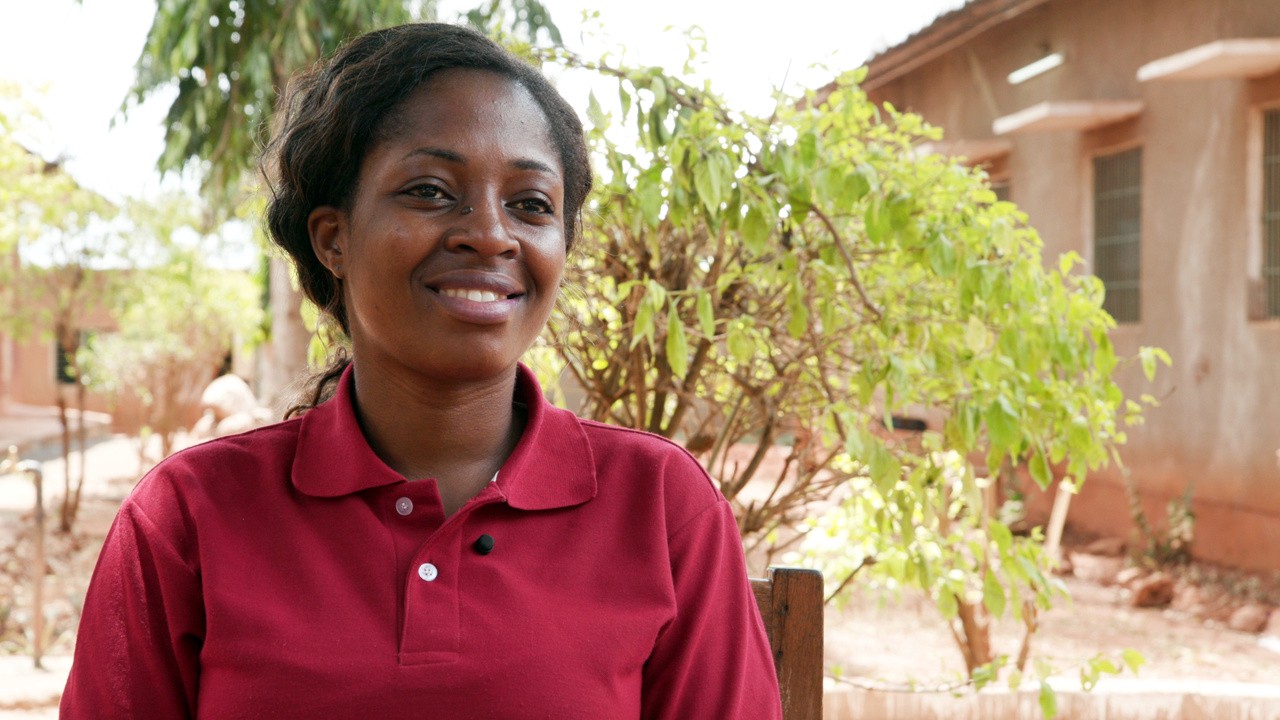
Diris Martin in Chalinze, Tanzania, October 2019 (Photo: CAMFED/Eliza Powell)
Beyond the classroom, we create an important home-school link. Because we grew up in the communities we serve, we know how to bring the most ‘invisible’ children to the attention of authorities. We are connected with local authorities, such as social services, district education authorities, and the police, as well as with parent groups, which we rally in support of vulnerable students.
Students know we will help
I asked Doris what she thinks makes a Learner Guide so impactful, and how students relate to them. She explained that Learner Guides can take the time to identify the problems students are facing. They recognize issues from their own experience. She said, “Sometimes a student may come to school late, or improperly dressed. Learner Guides — because of the background we share — realize that something may be wrong. We may know the family, that they are experiencing hardship. So we talk to students politely, trying to learn what the issues are. Because we are their peers, students gain confidence and trust us with their problems. They know we will help.”
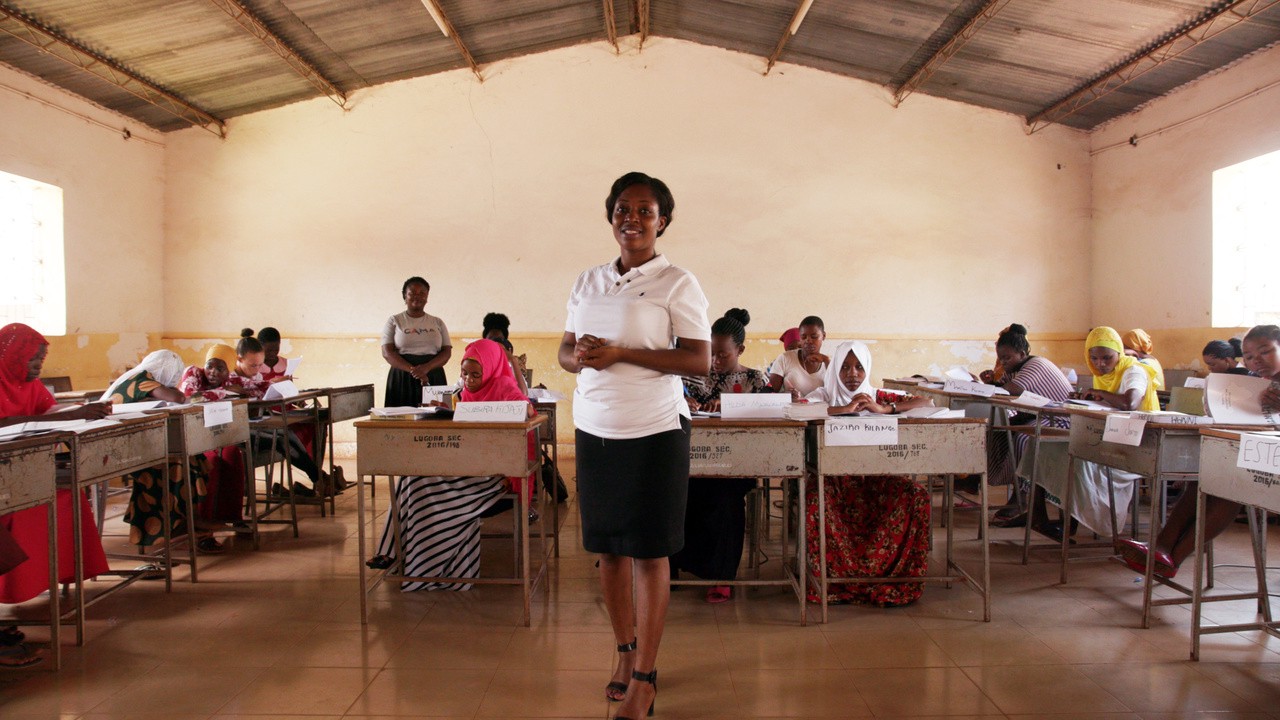
Diris Martin during a CAMFED Learner Guide training in Chalinze District, Tanzania, October 2019. (Photo: CAMFED/Eliza Powell)
We understand intimately that extreme poverty means a lack of choice and control — over your body, and your future — so most Learner Guides go beyond the call of duty. That way we can also be a great help to teachers, as we create the link between families and schools.
Parents are proud when they see retention and exam results improve
Doris told me, “As a Learner Guide, I have supported many other girls. There was one girl who dropped out of school when she was in Standard 7 (the last year of primary school) because she got pregnant. When the results came out, she passed her exams well to go on to secondary school. So I talked to the District Education Officer who rallied support for the girl to go back to school.
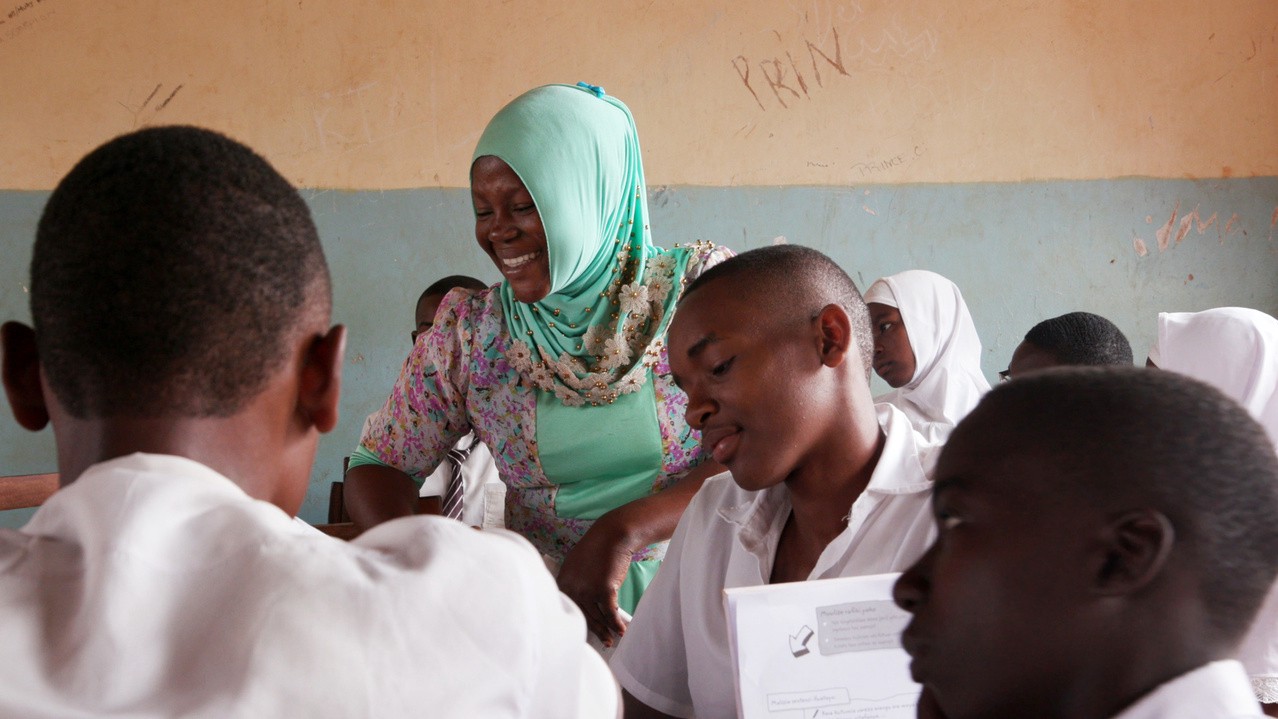
CAMFED Learner Guide Dotto supporting student-led discussions during a My Better World life skills session in Morogoro, Tanzania. The curriculum encourages group work, student presentations, and personal reflection. (Photo: CAMFED/Eliza Powell, October 2019)
“I also took in another girl to live with me. She comes from a very marginalized family. I am taking care of her like my own sibling, supporting her with school entitlements and life skills. At the community level I have helped to organize Parent Support Groups (PSGs), like Opendo PSG. Every day they cook porridge for the students at Mwaya secondary school.”
Many students walk to school on an empty stomach, struggling to concentrate. Learner Guides have lived hunger and hardship, so we are ideally placed to help organize parents, who are proud to cook school meals, grow crops, build and monitor school dorms, or donate school items. They are even prouder when they see retention and exam results improve.
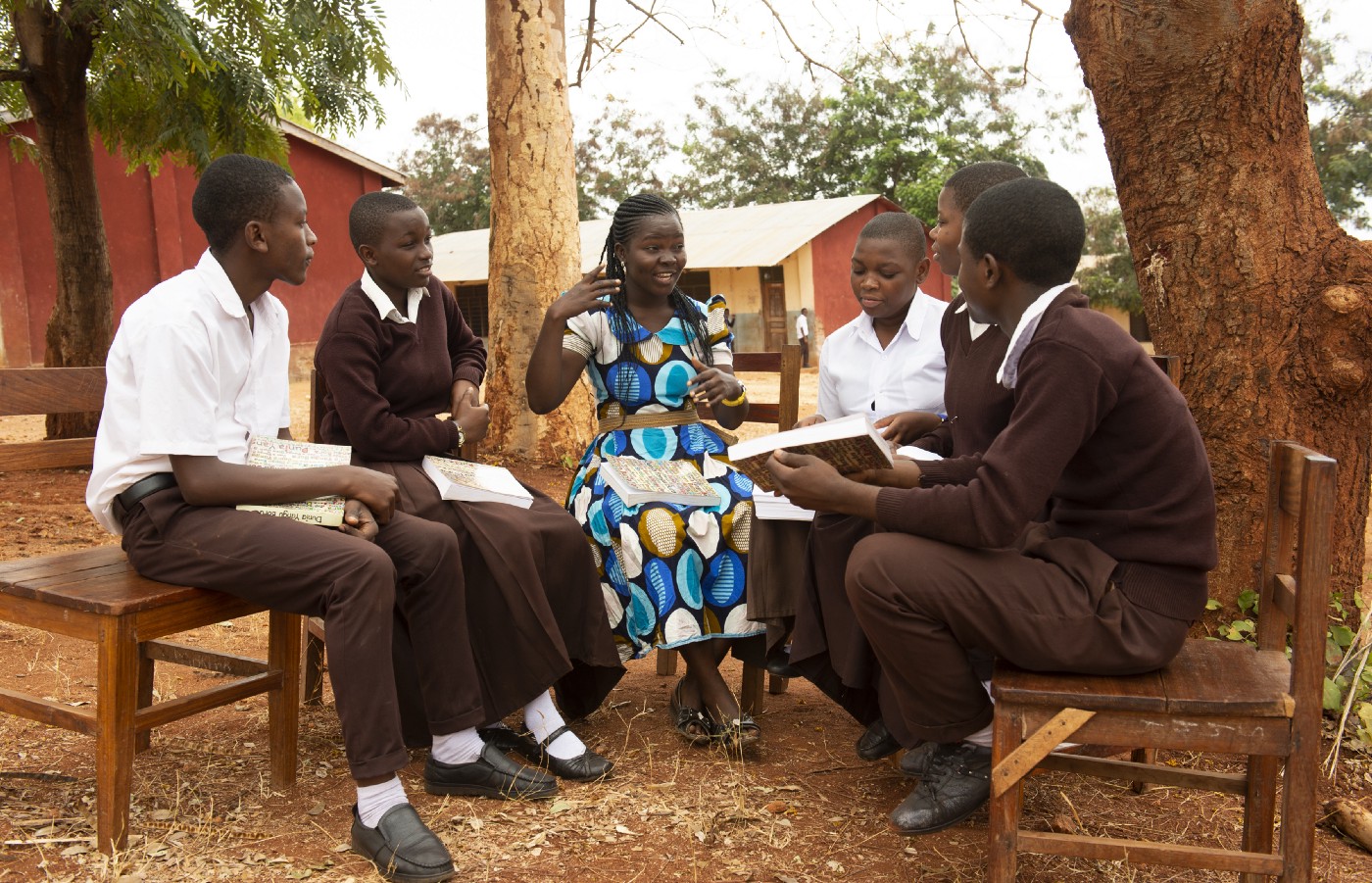
CAMFED Learner Guide Sophia facilitating group discussions with students while delivering the My Better World curriculum in Kilosa, Tanzania in October 2019. The workbook is published in Swahili to remove language barriers in a context where secondary school lessons are taught in English, putting marginalized students at an additional disadvantage. (Photo: CAMFED/Eliza Powell)
Outside the classroom, we go the extra mile to keep girls safe from early pregnancy and child marriage. Once a girl is married to an older man, Doris explains, it is hard to find a solution; often, if you take the man to court, the young family’s only food source disappears:
“Learner Guides do a lot of community outreach. We visit families and schools. We speak at meetings organized by village leaders. We say to parents, ‘If you agree to collaborate in early marriage, you are destroying your daughter’s life. So make sure she can concentrate on her studies at home, so she can focus on what she wants to be, and report any pressure to the police. Through the My Better World curriculum, we also teach students these topics, and how to take care of themselves.”
It’s all about ubuntu — thriving together
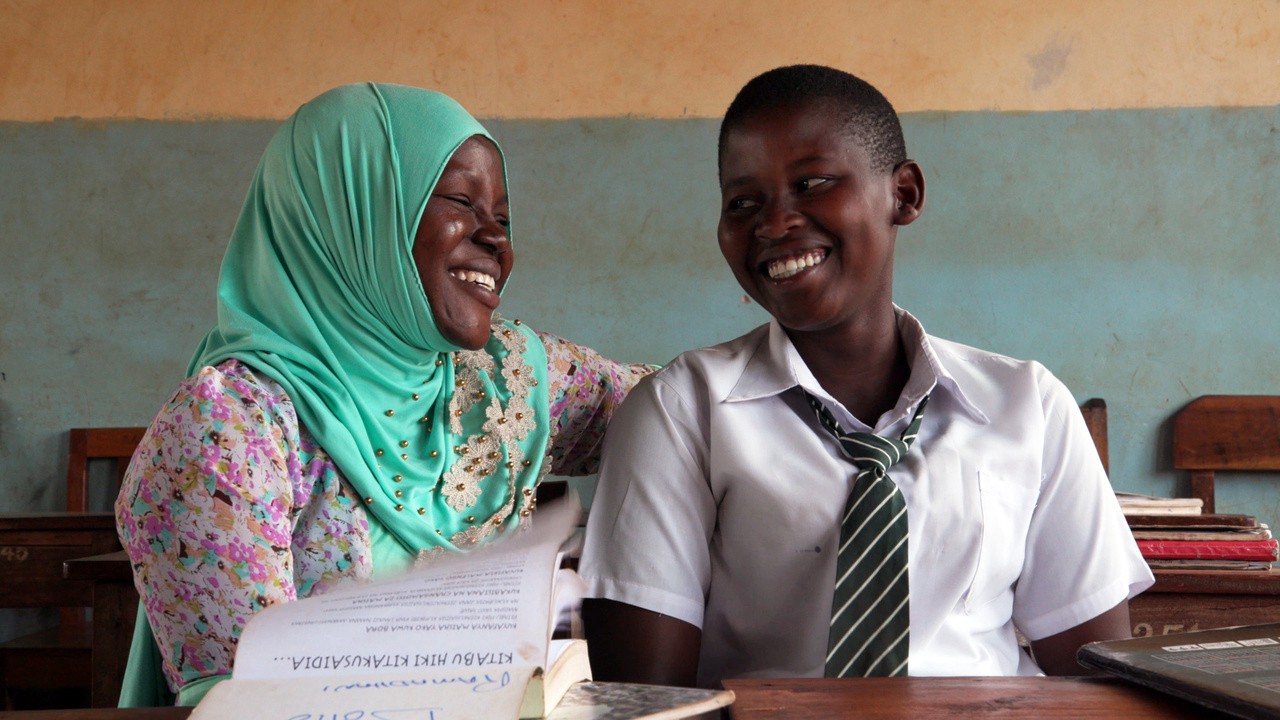
CAMFED Learner Guide Dotto mentoring secondary school student Hadija in Morogoro, Tanzania. Learner Guides support children in their studies, and deliver a tailored life skills and wellbeing program called My Better World. This program was developed with young people in Africa, and has been shown to improve learning outcomes, school retention, and progression. (Photo: CAMFED/Eliza Powell)
In return for volunteering their time and expertise, Learner Guides can access interest-free loans, as we are paying ‘social interest’ in our communities. CAMFED, through our Association, provides young women graduates with business training, and links them to government and private sector resources and opportunities. More experienced members of the CAMFED Association, like Doris and me, provide support and expertise to our sisters in the network; it’s all about ubuntu — thriving together.
Now we both train other Learner Guides, and Doris runs a successful food processing business, selling peanut butter, jam and chilli sauce. She delivers to homes and offices, which has extended her reach and proved sustainable during the COVID-19 pandemic.
Doris told me about Violet, a Learner Guide she trained, who now delivers the My Better World curriculum at Doris’ former secondary school. Doris is Violet’s role model, and proud of her success in the classroom and in business: “Violet is a farmer and a businesswoman like me now, producing liquid soaps and peanut butter, jam, and tomato and chilli sauce.”

I led the first Learner Guide Review Meeting that Doris attended back in 2016. During this quarterly meeting, Learner Guides from across Tanzania come together to discuss their challenges and successes, and introduce different variations of the program, for example introducing the e-readers some were using to drive up English literacy. (Photo: CAMFD/Daniel Hayduk)
Learner Guides are often the main breadwinners in their households, and the respect and recognition we earn leads to a big shift in attitude to female education, especially among the men in our communities. Through her profits, Doris now looks after her five siblings, supporting them all to go to school. She told me, “That’s all the result of the support I received at school, and through the CAMFED Association.”
My stepfather actually apologized to me
Doris’ stepdad is one of many men in our circles who has changed his way of thinking about women’s potential and the importance of education. Doris explained, “My family’s respect for me has increased a lot. They now get some of their basic needs from the financial support I provide. My stepfather, when he saw my progress and the support I bring to the family, actually apologized to me and said if he had known my potential, he would have supported me more in my education. I was selected as the Chairperson of my family, even though there are older uncles and aunties, because of the success I have had. I now always lead family discussions when there are important matters to cover.”
During the COVID-19 pandemic, CAMFED Learner Guides stepped up to support vulnerable children in their communities as schools closed, myths about the virus spread, and families faced even greater financial insecurity. The young women helped us print and share study materials with students; held small, socially-distanced study groups; and identified students at risk of hunger or abuse. They are sewing face masks and making soap to distribute to disadvantaged families, often alongside food parcels.
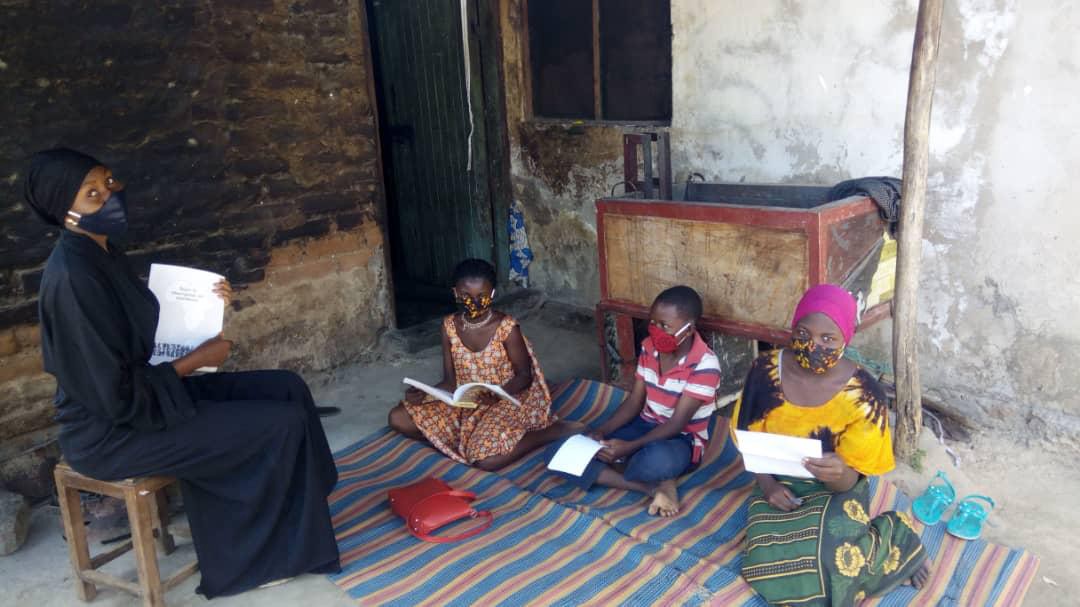
CAMFED Learner Guides Jamila and Johari reaching out to students with one on one life skills sessions and learning support in Tabora, Tanzania, during school closures due to COVID-19 in May 2020. (Photo: CAMFED)
Doris, like colleague Learner Guides in Ghana, Zambia and Malawi, has been broadcasting life skills sessions, and sharing health and safeguarding information through community radio programs. For children cut off from the internet*, radio and personal support proved to be real lifelines. Doris told me, “On the radio we reminded students that they should stay safe at home and continue studying, knowing that they will go back to school, and it’s important that they retain their knowledge. We also deliver our My Better World life skills sessions on the radio. I am happy to continue doing this, even though the schools have re-opened in Tanzania. We still need other young people — those not in CAMFED partner schools — to get this knowledge.”
We are creating good leaders and good citizens. With the Learner Guide Program, we are building a nation.

Doris Mponji at a Learner Guide Review meeting in Chalinze, Bagamoyo, Tanzania in 2016. (Photo: CAMFED/Daniel Hayduk)
By the end of 2019, we already had 821 Learner Guides active here in Tanzania. Last year the Center for Universal Education at the Brookings Institution launched a Real-time Scaling Lab with CAMFED Tanzania, convening stakeholders from schools, Ministries, civil society representatives, members of our CAMFED Association, CAMFED executive staff, and Brookings researchers to develop a strategy for scaling this program, contributing to the global evidence base on scaling quality education interventions.
“I can see this program bring more confidence to students, especially girls,” Doris told me, “because most of the topics prepare them to understand themselves, to be determined, and give them confidence and leadership skills. If this program is cascaded all over Tanzania, we are creating good leaders and good citizens.”
I always say that with the Learner Guide Program, we are building a nation. We are providing young women, and the children they support and mentor, with the foundation they need to be confident, responsible citizens, who can achieve their own wellbeing while lifting up those around them. Ours is the ultimate example of walking the talk, changing mindsets, and building gender equity through concrete action, not just words.
*Only approximately 1 in 4 people in the countries where CAMFED operates can access the internet, with connectivity and affordability an even greater barrier in the marginalized rural communities we serve. See https://www.mobileconnectivityindex.com/. CAMFED partners
with schools in Ghana, Malawi, Tanzania, Zambia, and Zimbabwe.
By the beginning of 2020:
CAMFED considers the multiplying effect to be the most exciting outcome of its unique model. For every girl who receives support to go to school, three more will follow.
The Yidan Prize Foundation, a global philanthropic educational foundation inspiring future progress and change in education, named Angeline Murimirwa, CAMFED’s Executive Director — Africa, and Lucy Lake, CAMFED’s Chief Executive Officer, as 2020 Laureates of the Yidan Prize for Education Development. The Yidan Prize is an inclusive education award that recognizes individuals, or up to three-member teams, who have contributed significantly to education research and development. The award particularly recognizes the contribution to equitable quality education delivered through CAMFED’s innovative Learner Guide program, and the My Better World self-development curriculum, which was developed with young people in Africa, and in collaboration with education company Pearson, with support from UK Aid through the Girls’ Education Challenge.
This article was first published by Taylor & Francis in Childhood Education Innovations on 22 January 2021, available online: https://www.tandfonline.com/doi/full/10.1080/00094056.2021.1873685

I'm Debora, a Learner Guide and school Matron in Tanzania. Once a vulnerable girl myself, I mentor students in Tanzania, helping them stay safe, stay…
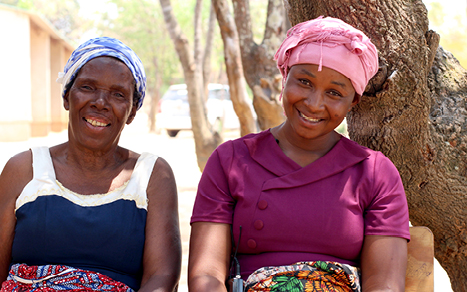
I decided to join the Mother Support Group because I wanted to counsel girls and help them progress in education. It feels really good that…
Sydney Gurewitz Clemens $10.9
Jessy Clement $31.9
Brock Warner $5.6
Alexis Taylor $47.6
David Sipes $500
Peter Miraglia $158
Martha Campbell $5254
Michael Lewis $250
Katie Hawks £10.6
Kimberly Elam $106
Sean Simmons $5.6
Marcia Tugendhat $158
Pamela Tishman $63.4
Mary Parker £26.2
Marjorie Grayson $50